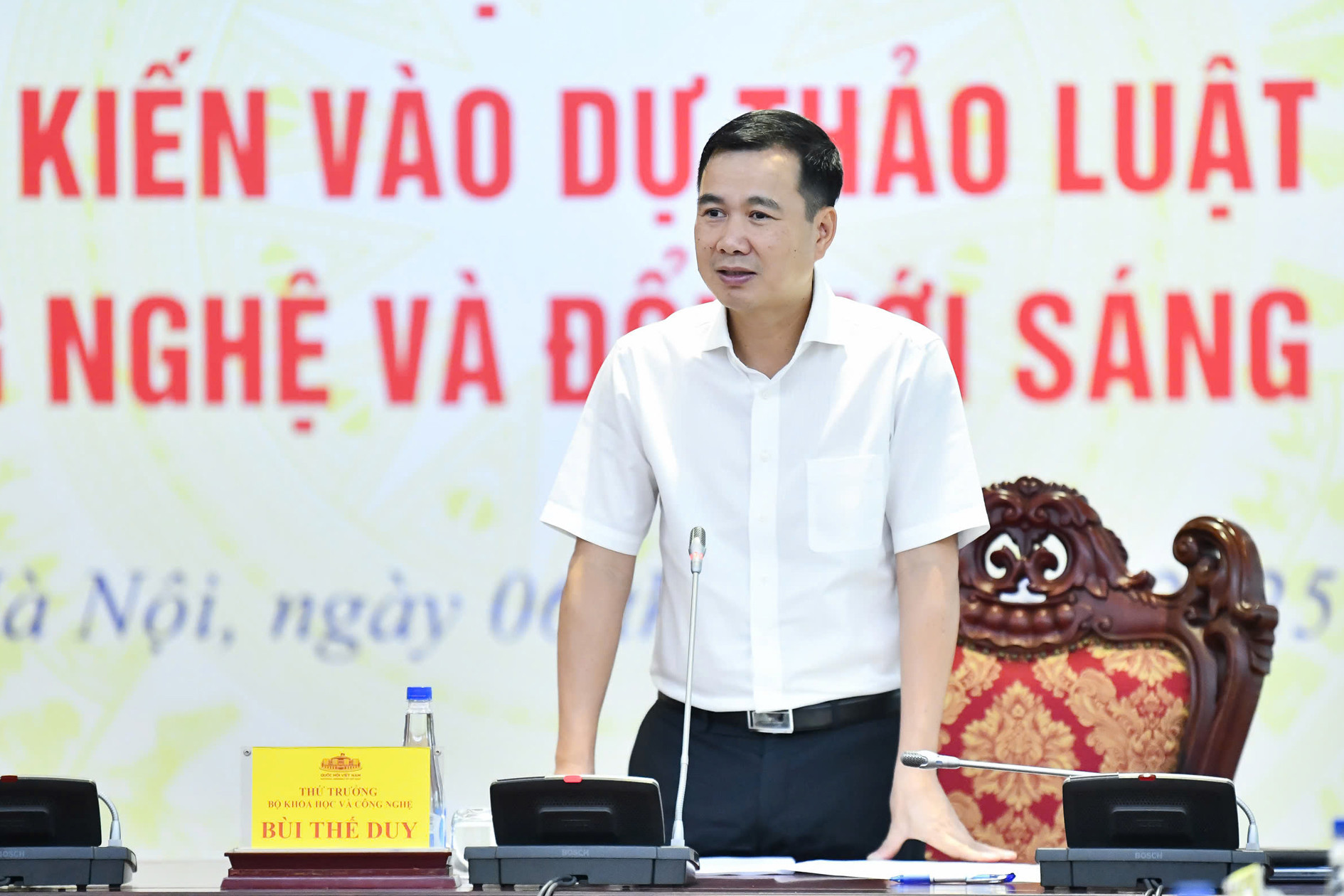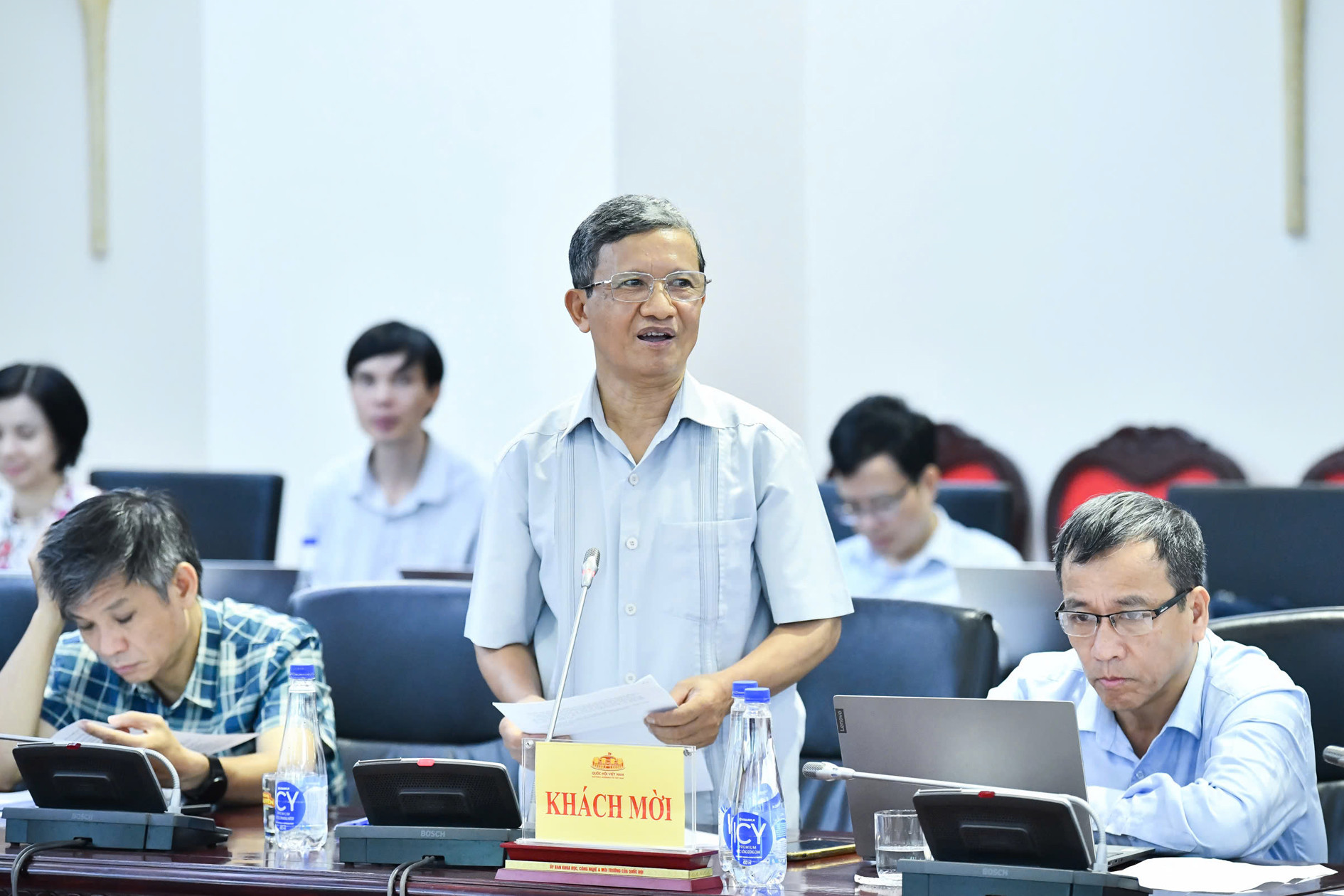On June 6, the National Assembly's Committee on Science, Technology, and Environment, the Ministry of Science and Technology (MOST), and the Vietnam Union of Science and Technology Associations jointly organized a workshop to gather comments on the draft law.

Opening the workshop, Nguyen Phuong Tuan, Deputy Chairman of the Committee on Science, Technology, and Environment, stated that the draft law had already received widespread attention and feedback from National Assembly delegates during the 9th session. The drafting team has since revised the bill in response to the feedback.
To further refine the law, delegates were encouraged to offer direct feedback on several topics, including the acceptance of risk in scientific research, mechanisms for accessing and acquiring technological know-how, decoding and adapting foreign technologies, and support for enterprises investing in strategic technologies.
Further refinement of content and structure needed
Delegates at the workshop praised the proactive efforts of the drafting team and agreed that revising the 2013 Law on Science and Technology is essential to meet new practical demands. In today’s context, science, technology, and innovation are becoming central drivers of national development.
One area of concern was the law’s title. Dr. Pham Van Tan, former Vice President and Secretary-General of the Vietnam Union of Science and Technology Associations, argued that “innovation” is inherently part of science and technology. He questioned whether the term needed to be added to the law’s title if the content already comprehensively supports innovation.
He also posed the question: if “innovation” is added, should “digital transformation” also be included, in alignment with the Politburo's Resolution 57-NQ/TW? He emphasized that breakthroughs depend on substantive policy content, not titles.
Regarding the structure, Dr. Tan proposed rearranging the content in Chapter II, Section 1, to follow a logical macro-to-micro order: strategy - plan - program - task. He also recommended including the concept of “planning” to ensure alignment with the current Planning Law.
On digital transformation, Dr. Tan criticized the draft for only addressing the issue in Article 18 and solely within science and technology activities. He noted that digital transformation is a societal demand, not confined to one sector. He urged the law to either broaden its scope or clarify the role of digital transformation within Vietnam’s legal system.
He also warned against limiting innovation to businesses and economic sectors. “Innovation also applies to public governance, culture, and society,” he noted. Therefore, the law should reflect the broader scope of innovation in a knowledge-based economy.

Dr. Tan highlighted another key point: funding. He suggested that the law should clearly mandate a minimum annual allocation of 2% of GDP to science, technology, and innovation, rather than the current 2% of the state budget. “Without sufficient financial resources, science and technology cannot become a development pillar,” he warned, pointing out that current spending is closer to 1%.
He also called for clearer regulations on which agencies have authority to approve technology trials, and recommended adding provisions for developing human resources, especially high-quality personnel in science, technology, and innovation management.
Ensuring constitutional integrity and legal clarity
Former Deputy Chairman of the National Assembly’s Legal Committee Dang Dinh Luyen also supported the law’s timely enactment, while urging careful review to ensure constitutionality, legality, and feasibility.
He noted that Article 2, which defines the law’s scope, lacks clarity - particularly concerning organizations and individuals outside Vietnam involved in science, technology, and innovation activities.
A key legal concern is Article 4, which states that if the law conflicts with other laws, it will take precedence. Dang Dinh Luyen said this contradicts the 2025 Law on Promulgation of Legal Documents, which prioritizes newer documents when laws of equal standing conflict.
He also called for clearer delineation of state management responsibilities, especially for the Ministry of Science and Technology. He suggested revising Article 12 to be more specific and moving it directly after Article 11 for logical coherence.
Several delegates raised concerns about Article 22(6), which allows for technology experiments that deviate from existing law. Luyen warned that authorizing actions that conflict with current laws could violate the Constitution. He recommended reconsidering this clause, arguing that it lacks solid legal grounding.
Finally, Luyen stressed the importance of international cooperation principles. The draft should align with Article 12 of the 2013 Constitution, upholding the values of independence, sovereignty, non-interference, and selective integration of international scientific and technological advancements.
The workshop recorded 15 in-depth contributions from experts and delegates, addressing issues such as the law’s scope, title, structure, specific provisions, and legal compatibility.
Deputy Minister Bui The Duy responded directly to several of the issues raised. Concluding the session, Nguyen Phuong Tuan stated that the contributions would be reviewed and incorporated by the drafting committee in collaboration with MOST and relevant agencies before submitting the law to the National Assembly Standing Committee for further discussion.
Thai Khang